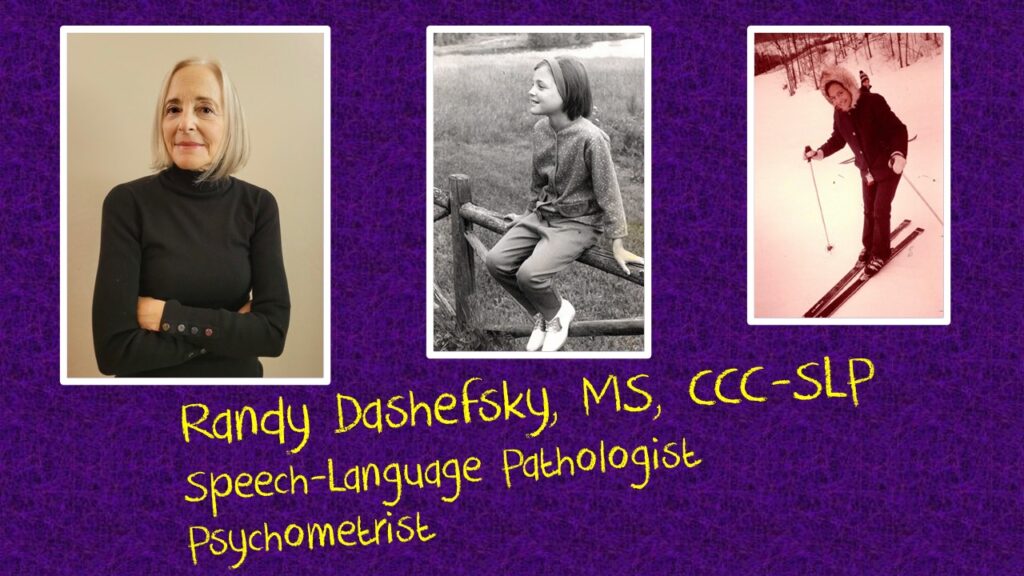
Randy is a licensed / certified speech and language pathologist (CCC-SLP), a workshop leader, and a psychometrist at Arizona Child Psychology, PLLC. She completed her bachelor’s degree in Psychology and Human Communication Disorders from McGill University in Montreal, Quebec, Canada, and obtained a master’s degree in Communication Disorders from the University of Vermont in Burlington Vermont. Randy worked for over 35 years for the Washington Elementary School District where she has had extensive experience in the area of assessment, speech, and autism spectrum disorders. She served on both the Autism Evaluation/Consultation Team and Speech and Language Evaluation Team, as well as working as a speech pathologist and supervisor in pre-school, school age, and junior high school programs. She has specialized training the area of assessment and communication via the TEACCH Model, administration of the ADOS, administration of the Wechsler instruments, the Picture Exchange Communication System, the STAR program, Social Thinking, Executive Functioning Skills, Emotional Regulation using the Zones of Regulation, Story Grammar, and Alternative and Augmentative Communication – AAC. She has presented inservices to therapists in her school district on various topics, including The Picture Exchange Communication System, Social Communication, Social Stories, and Social Language Development Scenes.
As a child specialist, I am multifaceted, and wear several different hats at Arizona Child Psychology, PLLC! As a psychometrist, my primary focus is to accurately assess children in a warm, supportive and patient manner so they are able to demonstrate their full cabilities and skills. As a workshop facilitator, my primary goal is to teach important social skills and strategies, and then to create a supportive and nurturing environment where children are confident enough to practice and master such skills. As a licensed speech and language pathologist, my primary focus is for students to communicate effectively, and to help them navigate the social world with positive self-esteem and confidence. I like to follow the Social Thinking methodology adapted from Michelle Garcia Winner, which aims to help students improve social competencies through self regulation, social emotional learning, perspective taking and social problem solving. Both individual and group therapy focus on teaching students how to act with expected behaviors in order to be part of the group. I try to help students understand that their communicative behaviors affect what people think of them and subsequently how people will respond to them. Techniques such as using their social filter, considering what others may be thinking, interpreting non-verbal communication, understanding abstract language, understanding empathy, and using social conversational skills are paramount for effective communication. The overall goal is for children to communicate effectively , make friends, be respected, and lead happy, productive lives.
Copyright © 2023. All rights reserved.